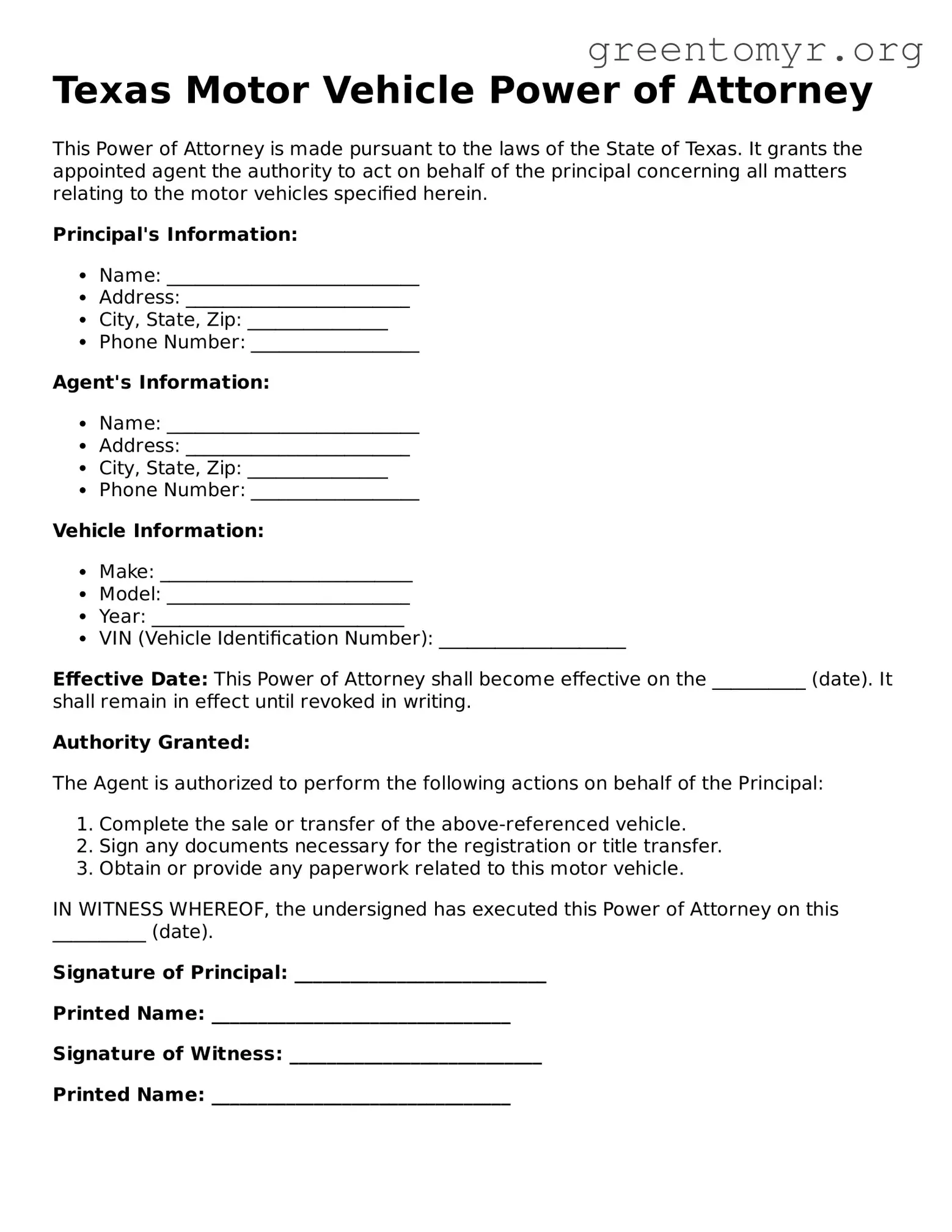Texas Motor Vehicle Power of Attorney
This Power of Attorney is made pursuant to the laws of the State of Texas. It grants the appointed agent the authority to act on behalf of the principal concerning all matters relating to the motor vehicles specified herein.
Principal's Information:
- Name: ___________________________
- Address: ________________________
- City, State, Zip: _______________
- Phone Number: __________________
Agent's Information:
- Name: ___________________________
- Address: ________________________
- City, State, Zip: _______________
- Phone Number: __________________
Vehicle Information:
- Make: ___________________________
- Model: __________________________
- Year: ___________________________
- VIN (Vehicle Identification Number): ____________________
Effective Date: This Power of Attorney shall become effective on the __________ (date). It shall remain in effect until revoked in writing.
Authority Granted:
The Agent is authorized to perform the following actions on behalf of the Principal:
- Complete the sale or transfer of the above-referenced vehicle.
- Sign any documents necessary for the registration or title transfer.
- Obtain or provide any paperwork related to this motor vehicle.
IN WITNESS WHEREOF, the undersigned has executed this Power of Attorney on this __________ (date).
Signature of Principal: ___________________________
Printed Name: ________________________________
Signature of Witness: ___________________________
Printed Name: ________________________________
